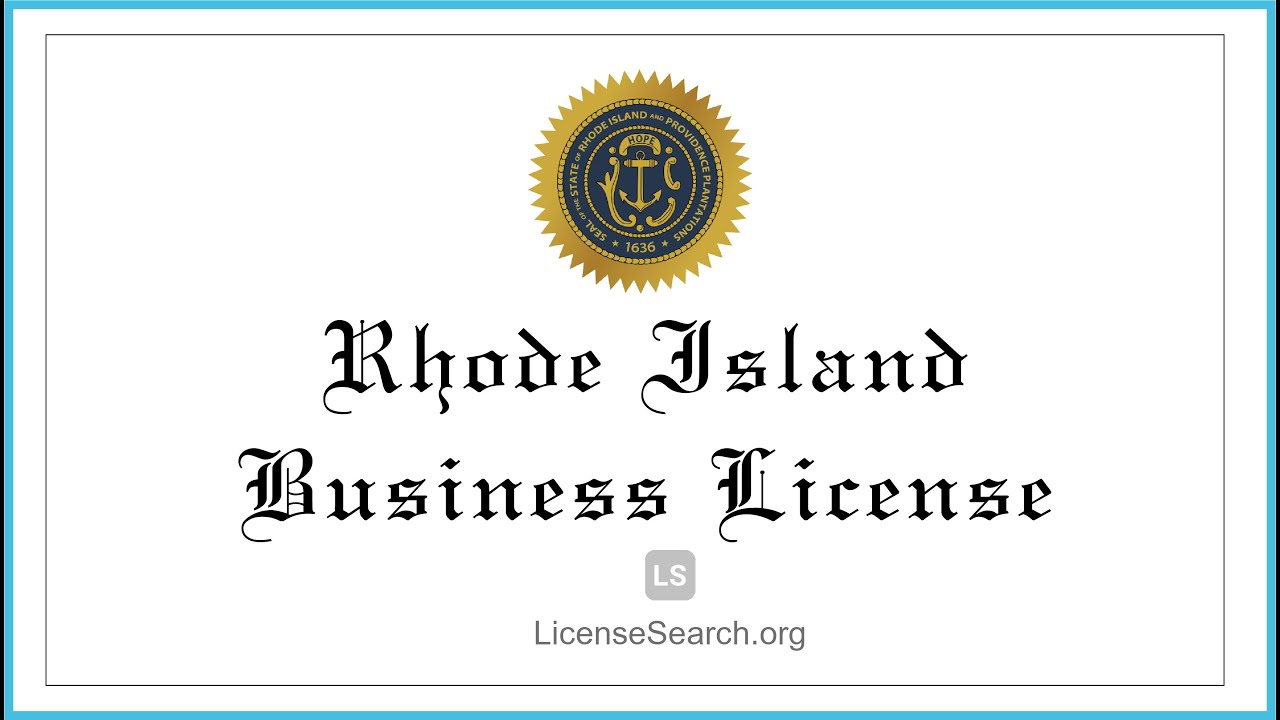Introduction: Overview of obtaining a business license in Rhode Island
Obtaining a business license is an essential step for entrepreneurs looking to establish their ventures in Rhode Island. This article will guide you through the necessary steps to obtain a business license in the state. It is important to note that the specific requirements may vary depending on the nature of your business, so it is crucial to conduct thorough research and seek professional advice to ensure compliance with all regulations and licensing requirements.
Step 1: Determine the type of business license required for your venture
The first step in obtaining a business license in Rhode Island is to determine the specific type of license required for your venture. Different businesses may require different types of licenses, such as professional licenses, health permits, or zoning approvals. Identifying the correct license will help streamline the application process and save you time and resources.
Step 2: Conduct thorough research on licensing requirements and regulations
Once you have determined the type of license needed, conducting thorough research on the licensing requirements and regulations is crucial. The Rhode Island Department of Business Regulation (DBR) website is a valuable resource, providing detailed information on different business licenses, fees, and any additional prerequisites. It is advisable to consult the Rhode Island Small Business Development Center (SBDC) or seek legal counsel to ensure you have a comprehensive understanding of the specific requirements for your business.
Step 3: Create a comprehensive business plan for your enterprise
Before applying for a business license, it is essential to create a comprehensive business plan. This plan should outline your business goals, target market, marketing strategies, financial projections, and any other relevant information. A well-prepared business plan can help demonstrate your seriousness and commitment to your enterprise, increasing your chances of obtaining a business license.
Step 4: Register your business entity with the Rhode Island Secretary of State
Registering your business entity with the Rhode Island Secretary of State is an important step in the process of obtaining a business license. You can choose to register as a sole proprietorship, partnership, corporation, or limited liability company (LLC). The registration process involves submitting the necessary forms, paying the applicable fees, and providing information about your business structure and ownership.
Step 5: Obtain an Employer Identification Number (EIN) from the IRS
Most businesses are required to obtain an Employer Identification Number (EIN) from the Internal Revenue Service (IRS). The EIN serves as a unique identifier for your business and is necessary for tax purposes, hiring employees, and opening business bank accounts. You can apply for an EIN online through the IRS website, and the process is relatively straightforward.
Step 6: Secure any necessary permits or certifications specific to your industry
In addition to a general business license, certain industries may require specific permits or certifications. For example, food establishments may need health permits, contractors may need construction licenses, or professionals such as accountants or attorneys may need professional licenses. It is essential to identify any industry-specific requirements and ensure compliance before applying for a business license.
Step 7: Determine the location of your business and comply with zoning laws
The location of your business plays a critical role in obtaining a business license. You must ensure that your chosen location complies with zoning laws and regulations. Zoning laws dictate where certain types of businesses can operate, ensuring that they are compatible with the surrounding area. It is advisable to contact the local zoning office to determine the specific zoning requirements for your business.
Step 8: Submit a completed application for a business license
Once you have gathered all the necessary information and completed the required preparations, it is time to submit your application for a business license. The application form can be obtained from the Rhode Island DBR website or by visiting the DBR office in person. It is important to complete the application accurately and include all required information to avoid delays in the review process.
Step 9: Provide supporting documentation and pay the required fees
When submitting your business license application, you will typically be required to provide supporting documentation and pay the applicable fees. The specific documents and fees will vary depending on the type of license and your business activities. Common supporting documents may include identification, proof of business ownership, financial statements, and leases or agreements related to your business location.
Step 10: Await review and approval of your business license application
After submitting your application, it will be reviewed by the relevant authorities. The review process may take some time, as the authorities need to ensure that all requirements are met and that your business complies with applicable laws and regulations. It is important to be patient during this stage and be prepared to provide additional information or address any issues that may arise during the review process.
Step 11: Renew your business license as required by Rhode Island law
Once your business license is approved, it is essential to understand and comply with the renewal requirements set forth by Rhode Island law. Business licenses typically have an expiration date, and it is the responsibility of the business owner to renew the license before it expires. It is advisable to keep track of the expiration date and submit the renewal application and fees in a timely manner to ensure uninterrupted operation of your business.
In conclusion, obtaining a business license in Rhode Island requires careful planning, research, and compliance with the specific requirements for your venture. By following the outlined steps, you can navigate the licensing process efficiently and legally establish your business in the state. Remember to consult the appropriate authorities, seek professional advice, and stay informed about any changes in licensing regulations to ensure ongoing compliance.





